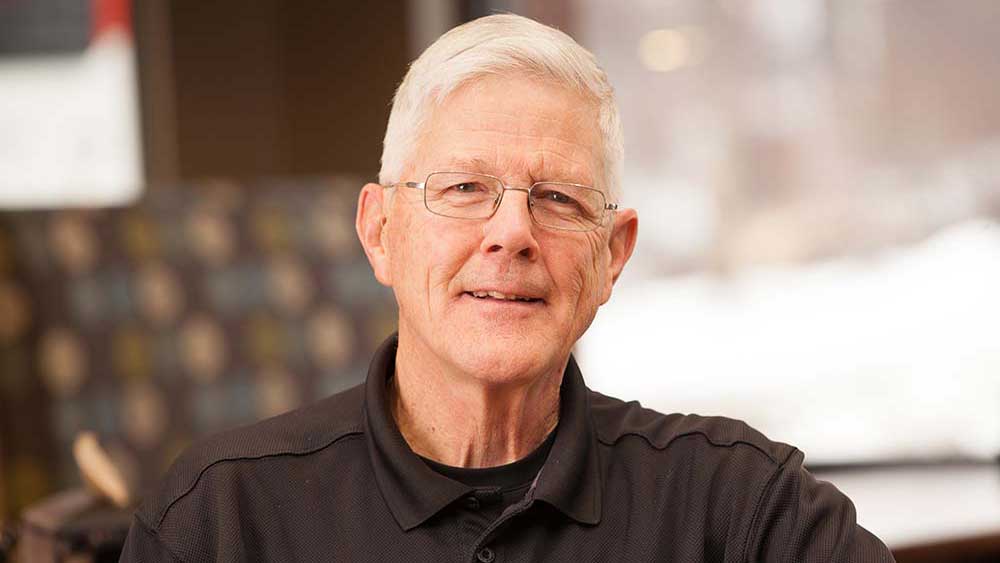

Prevention and Management of Cardiovascular Disease in Older Adults
Heart disease is America’s No. 1 killer, but a significant number of these deaths are preventable. The American Heart Association (AHA) estimates that 43.7 million Americans age 60 and above have one or more types of cardiovascular disease, such as heart disease, heart attack, stroke and heart failure. About two-thirds of cardiovascular disease deaths occur in people age 75 and older.1
Aging can cause changes in the heart and blood vessels, increasing the risk for cardiovascular disease. The Centers for Disease Control and Prevention (CDC) reports, “About 1 in 5 heart attacks is silent — the damage is done, but the person is not aware of it.”2 To help prevent cardiovascular disease nationwide, February is designated as American Heart Month. A federally established annual event since 1964, American Heart Month is an important reminder to work with friends, family and senior loved ones to keep everyone’s heart healthy.
U.S. Cardiovascular Disease by the Numbers
The AHA notes that roughly 85.6 million Americans have one or more types of cardiovascular disease. Here are more U.S. statistics on cardiovascular disease:
- On average, someone dies of cardiovascular disease every 38 seconds. About 2,303 deaths from cardiovascular disease occur each day.
- An estimated 46% of adults, or 116.4 million people, have high blood pressure.
- On average, someone dies of a stroke every 3.70 minutes, which equates to almost 390 deaths each day.3
- On average, the first heart attack occurs at age 65 for men and age 72 for women.4
- Cardiovascular diseases claim more lives annually than all forms of cancer and chronic lower respiratory disease combined.
- The direct and indirect costs of cardiovascular diseases and stroke were $351.2 billion between 2014 and 2015.
- A 2016 study projected that direct medical costs of cardiovascular disease will reach $749 billion in 2035.5
Cardiovascular Disease Risk Factors
To gauge cardiovascular health nationwide, the AHA developed Life’s Simple 7® as a means to track seven key health factors and behaviors that affect a person’s risk for heart disease and stroke.
Life’s Simple 7 are:
1. Not smoking
2. Physical activity
3. Healthy diet
4. Normal body weight
5. Control of cholesterol
6. Control of blood pressure
7. Control of blood sugar
Of these health factors, tobacco use is considered one of the most preventable causes of death in the country. For smokers, going smoke-free results in a number of positive health benefits, for example, the AHA states, “One year after quitting, your risk of coronary heart disease is reduced by 50 percent.”6 Remaining sedentary and a poor diet contribute to being overweight and raise the risk of declining heart health. The CDC finds that about half of Americans have at least one of these key risk factors for heart disease: high blood pressure, high blood cholesterol and smoking.7 The CDC also adds excessive alcohol use to the lifestyle choices that elevate risk for heart disease.
How to Keep Cardiovascular Disease Under Control
Fortunately, reducing the risk of cardiovascular disease is possible through a number of positive lifestyle choices. To promote lasting change in a person’s health through everyday small steps, the AHA created a healthy living movement called Healthy for Good™. The movement’s approach is threefold: Eat Smart. Move More. Be Well. The Healthy for Good movement hopes to inspire people to choose heart-healthy foods, exercise regularly, manage stress, get adequate sleep and practice mindfulness.
Many older adults are surprised to find that they can prevent and significantly lessen the effects of cardiovascular disease by making even small adjustments in their daily routines. The following are ways to improve cardiovascular health:
1. Manage blood pressure. When blood pressure rises too high, the extra force on the circulatory system can damage artery walls and build up scar tissue. This can limit the smooth flow of blood and oxygen to and from the heart, causing the heart to pump harder and wear out more quickly. To lower blood pressure, reduce salt and alcohol intake, and eat fewer saturated-fat foods. Incorporating more exercise and controlling stress will also help drop blood pressure into the normal range (less than 120 over 80).
2. Stay physically active. An average fitness goal is moderate exercise that keeps you moving and breaking a light sweat for 30 minutes a day five days a week.8 However, remaining sedentary, like sitting at work, in the car or on the sofa, for the rest of the day is not good either. Instead, break up long periods of sitting by getting up and moving around. For example, climb up and down stairs during TV commercials or walk around when you’re on the phone.
3. Eat nutrient-rich foods. The heart runs best on plant-based foods (vegetables, fruits, seeds and nuts) and fewer processed, convenience foods (crackers, chips, packaged desserts and microwave meals). Nutritionists recommend one of the fastest ways to adopt a heart-healthy diet is to forgo sugary beverages such as sodas and fruit juices. Fresh fruits and veggies, quality whole grains, and wild fish make up the core of a diet for better overall health.
In-home Caregivers Help With Heart Health
The older people get, the harder it can be to oversee all aspects of health and well-being. Oftentimes, seniors need encouragement and respectful supervision to make the right choices to improve their heart health. Right at Home has found that people with cardiovascular disease benefit from staying in the familiarity of their own homes with the help of a professional caregiver. Individuals with cardiovascular disease or who are recovering from a heart attack or stroke need careful monitoring to prevent further complications.
Right at Home caregivers can assist cardiovascular disease patients in a number of ways:
- Ambulation. Fatigue and shortness of breath from cardiovascular disease can limit a patient’s movement and lead to falls. Having an adult home care professional assist the patient with mobility is both a safeguard and a relief to the patient and their family.
- Dietary intake. Cardiovascular patients are typically placed on a diet low in sodium, fat and cholesterol, and they may need help shopping for and preparing appropriate meals and snacks.
- Medication reminders. Medications are extremely important for people dealing with cardiovascular conditions. Forgetting to take medications or taking them incorrectly can result in hospital readmission. An in-home caregiver can remind the patient to take medications and can run to the pharmacy for prescription refills or to pick up additional medications.
- Personal care. Many heart and stroke patients feel weak and struggle with bathing, dressing, eating and using the bathroom. A trusted in-home caregiver can provide an extra hand with these daily tasks.
- Home management. Because of decreased energy and mobility, people with cardiovascular disease may need help with cleaning, laundry, errands and a number of regular routines including pet care.
- Rehabilitation. Attendance at cardiac or stroke rehab is crucial, and for more severe cases, required daily. Cardiac rehab programs have shown to decrease the odds of additional heart attacks. At-home caregivers can provide the patient with transportation to rehab appointments and can monitor the patient’s compliance with prescribed activities to do at home.
- Follow-up with physician. Adult home care providers can drive cardiovascular patients to and from medical appointments, help record the physician’s suggestions, and communicate changes in the patient’s condition to the family.
In addition, Right at Home offers clients a disease management program to help monitor symptoms and promote self-care. Right at Home caregivers are trained in specific health conditions; are prepared to recognize warning signs of heart attack, stroke and other illnesses; and can seek medical help, which is often the difference between life and death. Right at Home’s comprehensive disease management program is tailored to help with the following diagnoses:
- Acute myocardial infarction (AMI), commonly known as heart attack
- Congestive heart failure (CHF)
- Cerebral vascular accident (CVA), commonly known as stroke
- Chronic obstructive pulmonary disease (COPD)
- Dementia
- Diabetes
- Parkinson’s disease
- Pneumonia
- Hip or knee replacement
While heart disease remains the No. 1 killer in America, as more and more people are aware of American Heart Month and follow a heart-healthy lifestyle, deaths from cardiovascular disease will continue to drop. That is news that will do everyone’s heart good.
Latest Resources for Seniors
Featured article








